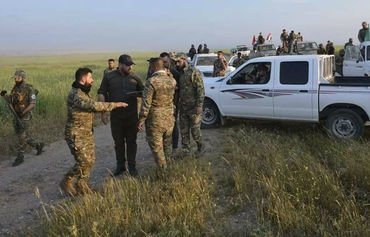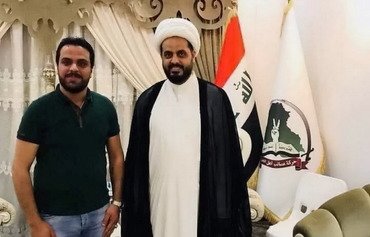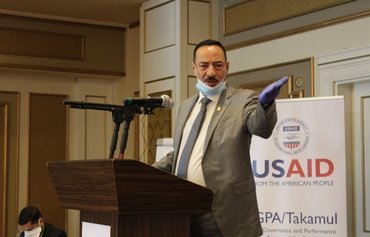Ninawa officials blame militias affiliated with Iran's Islamic Revolutionary Guard Corps (IRGC) for the stagnation of investment and private sector activities in the province.
Despite the fact that Ninawa was freed from the "Islamic State of Iraq and Syria" (ISIS) nearly three years ago, investment and entrepreneurship have still not picked up.
Officials say investors who take on a project in the province, particularly in Ninawa Plains, are faced with obstacles created by militia groups dominating the area.
Groups such as Kataib Hizbullah, al-Nujaba, Babylon Movement, Asaib Ahl al-Haq, Saraya al-Khorasani and Hashd al-Shabak were sanctioned by the US for their involvement in human rights abuses and corruption in Ninawa.
Former Ninawa council member Mohammed al-Jubouri told Diyaruna that investment and private sector activities in Ninawa today suffer from the same security challenges that disrupted life in the province under ISIS.
Unlike in Anbar province, financial activity has not fully returned to Ninawa yet, he said.
Militias keep investors away from Ninawa
Entrepreneurs and investors avoid working in areas where militias are active, because they do not want to endanger their capital or risk militias disrupting their projects, al-Jubouri told Diyaruna.
Recently, he said, an entrepreneur had to halt work midway through his construction project in Ninawa due to disruptions from Kataib Hizbullah and al-Nujaba militiamen who were trying to extort money and building materials from him.
According to al-Jubouri, militia presence has had a crippling impact on medium-sized and small enterprises.
After al-Shabak elements tried to extort money from him, Mahmoud Ezzat al-Sinjari, a Ninawa province entrepreneur who owns a chain of retail stores, decided to keep two of his stores in al-Hamdaniya, east of Mosul, closed.
Al-Sinjari told Diyaruna militants set conditions for his activity in the area, forced him to hire contractors affiliated with the militias, asked him for free merchandise and demanded bribes in exchange for his safety.
Iraqi security forces seem to be more assertive since Mustafa Kadhemi took over as prime minister, but militias are increasingly taking advantage of the cover of the Popular Mobilisation Forces (PMF) to commit larceny and other crimes, he said.
Less security, less business, less IDPs
Ali al-Hadidi, a Ninawa affairs expert, told Diyaruna life in other Iraqi provinces that were liberated from ISIS appears to be better than it is in Ninawa, especially in Ninawa Plains and Tal Afar. He cited fewer militias, thus more security, in other provinces as the reason for the better quality of life.
"There are currently seven to 10 active militia groups in Ninawa" whose members make efforts to impose their agenda on the local population, he said.
Their presence also interferes with the area's real estate and stock farming businesses, which is why many real estate business owners and cattle farmers have left for more secure places, he added.
Meanwhile, some internally displaced persons (IDPs) are reluctant to return to Ninawa due to the presence of IRGC-affiliated groups, he said.
The militias' agenda in Ninawa may be similar to that of those active in the neighbouring Syrian region of Albu Kamal in Deir Ezzor, where IRGC-backed militant groups have been effecting demographic change, al-Hadidi said.

![Iraqi forces in Ninawa province after liberating 16 villages in southern Mosul from ISIS. [Photo via Entekhab.ir]](/cnmi_di/images/2020/11/03/26806-Iraq-Mosul-Ninawa-600_384.jpg)






